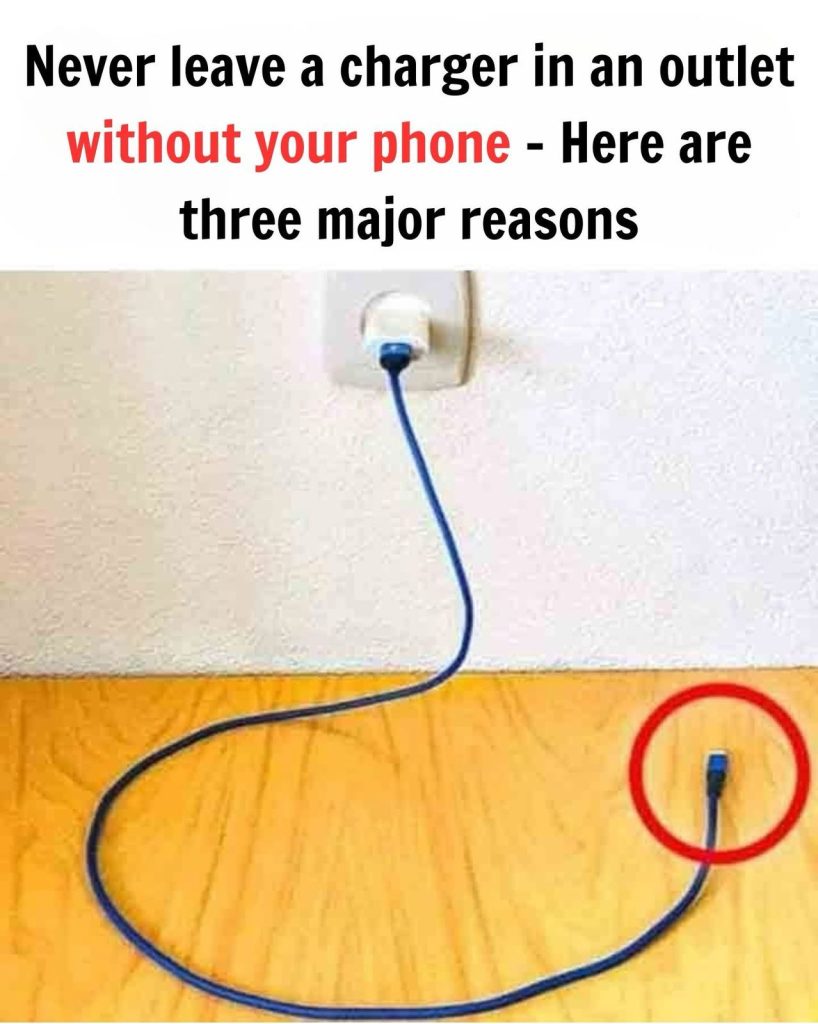1. Fire Hazard and Electrical Risks
One of the biggest dangers of leaving a charger in an outlet without a phone attached is the risk of overheating, which can potentially lead to electrical fires. Chargers constantly draw a small amount of electricity, even when they are not actively charging a device. If the charger is of low quality, damaged, or poorly manufactured, it may overheat over time. This overheating can become a fire hazard, especially if the charger is left plugged into an outlet near flammable materials such as curtains, paper, or fabric.
In addition to overheating, some chargers can develop internal faults that may lead to short circuits or electrical sparks. If left unattended, this can damage the electrical outlet, create sparks, or in extreme cases, cause an electrical fire. It is always advisable to unplug chargers when they are not in use, especially if you are leaving the house or going to bed, to minimize any risks.
2. Wasted Energy and Higher Electricity Bills
Many people are unaware that plugged-in chargers continue to draw electricity, even when they are not connected to a phone. This phenomenon is often referred to as “vampire energy” or “phantom load,” where devices continue to consume small amounts of electricity when plugged into an outlet but not actively in use. Although the power consumption of a single charger may seem minimal, the impact becomes significant when you have multiple chargers left plugged in across different rooms in your home.
Over time, this unnecessary energy usage adds up and contributes to a higher electricity bill. While a single charger may only consume a small amount of electricity, when combined with other idle electronic devices, it can lead to wasted energy that could have been easily saved by unplugging the charger. Additionally, this excess energy consumption contributes to environmental issues by increasing the overall demand for electricity, which is often generated through non-renewable energy sources. By making a simple habit of unplugging your charger when it’s not in use, you can save money on your electricity bill and reduce your carbon footprint.
3. Shorter Charger Lifespan and Potential Damage
Leaving a charger plugged into an outlet continuously without use can also shorten its lifespan. Chargers are designed to regulate power efficiently when they are actively charging a device, but when they are left plugged in without a phone, they still experience minor electrical fluctuations. Over time, this constant exposure to small electrical currents can wear down the internal components of the charger, reducing its efficiency and making it more prone to failure.
As the charger degrades, it may become less effective at charging your phone, resulting in slower charging times or inconsistent power delivery. In some cases, a weakened charger can even overheat or stop functioning altogether, forcing you to replace it sooner than expected. This not only leads to additional expenses but also contributes to electronic waste, which has negative environmental consequences.
Furthermore, if a charger is frequently left plugged in and exposed to power surges, it may develop internal damage that makes it unsafe to use. A damaged charger may fail to properly regulate voltage, potentially harming your phone’s battery in the long run. To extend the lifespan of your charger and protect your devices, it’s best to unplug it when not in use.
Final Thoughts: A Simple Habit for Safety and Efficiency
While it may seem convenient to leave your charger plugged in all the time, the risks far outweigh the benefits. By unplugging your charger when it’s not in use, you can:
- Reduce the risk of fire hazards and electrical damage.
- Lower your electricity bill by avoiding unnecessary energy waste.
- Extend the lifespan of your charger, saving you money on replacements.




